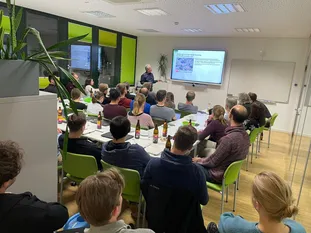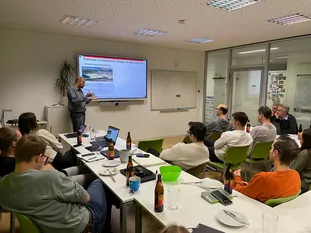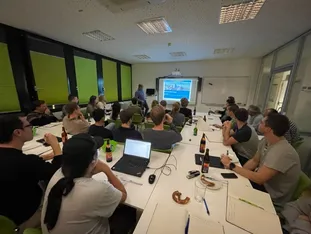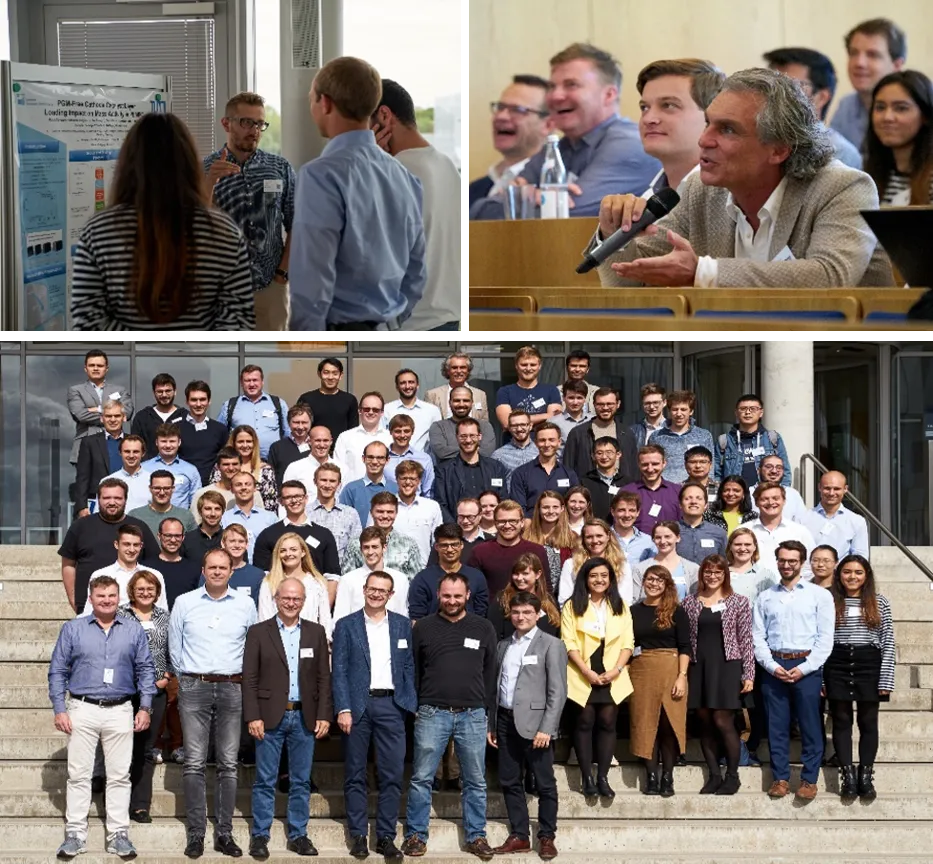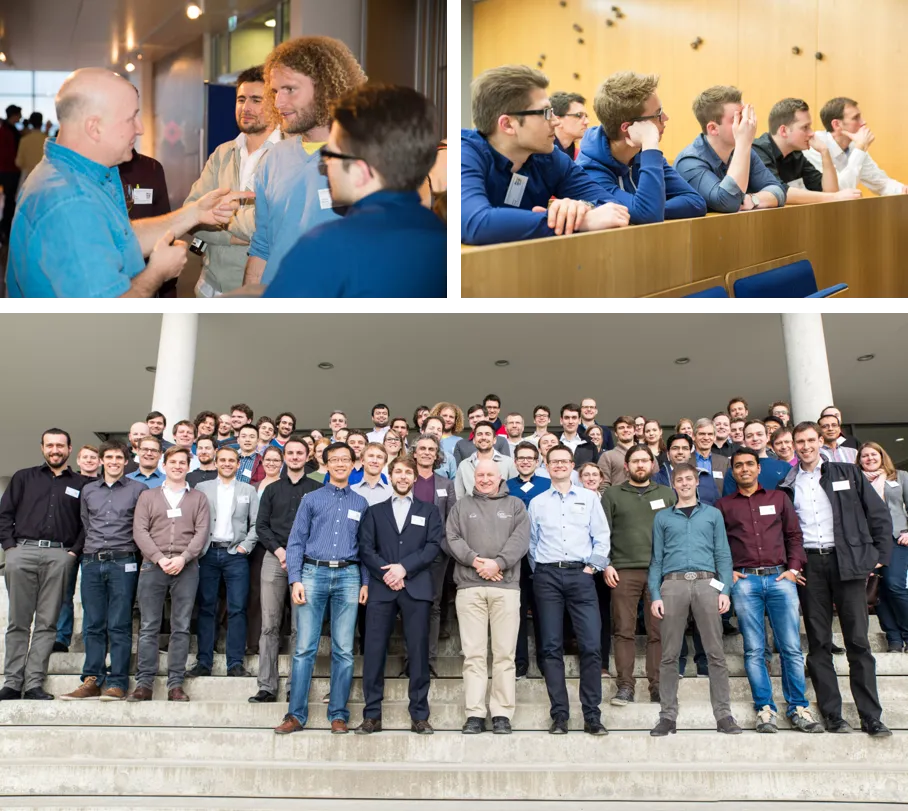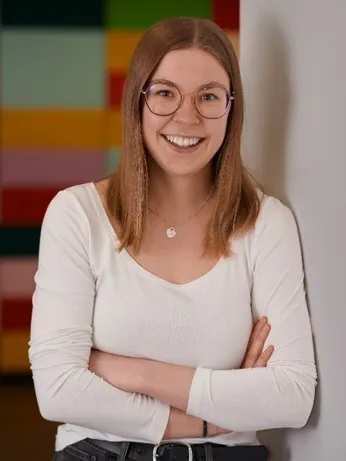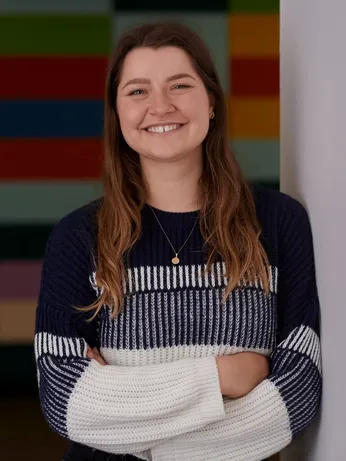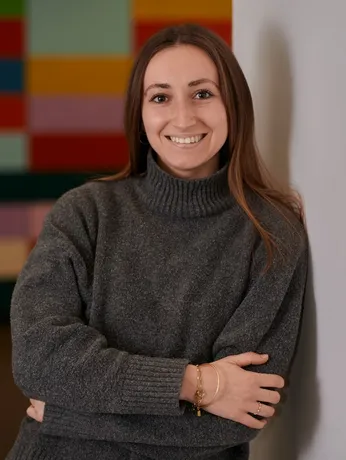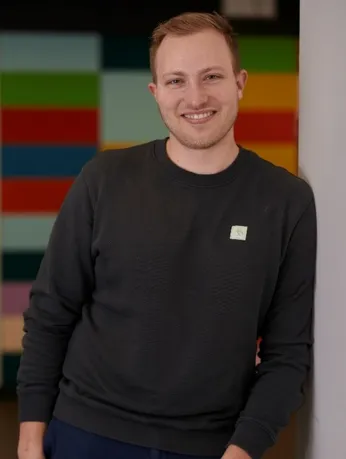ECS Student Chapter Munich

News
Electrochemical Society Student Chapter Munich Receives the Outstanding Student Chapter Award 2024
We are proud to announce that the Electrochemical Society Student Chapter Munich has been honored with the prestigious Outstanding Student Chapter Award by the Electrochemical Society (ECS). This award recognizes the exceptional efforts and achievements of our student chapter in fostering the advancement of electrochemical sciences.
The Outstanding Student Chapter Award is presented annually to the most active and impactful student chapters around the world. It acknowledges the dedication, leadership, and contributions of our members in organizing events, fostering collaboration, and furthering the mission of the ECS.
We would like to extend our gratitude to all our members, faculty advisors, and partners who have supported us throughout our journey. Thank you to the Electrochemical Society for this recognition, and we look forward to further contributing to the growth of the electrochemical sciences!
https://www.electrochem.org/ecsnews/2024-ecs-outstanding-student-chapter
Upcoming Events
| 25.09.2025 | Start-Up Day (Flyer coming soon) |
About us
The ECS Student Chapter Munich (ECS-SCM) is a student initiative that was established in November 2015 at the Technical University of Munich and currently has around 35 PhD students and postdocs from various natural science and engineering departments as its members. The aim of the ECS-SCM is to generate a platform for students and young academics to broaden their knowledge in the field of renewable energy, make contacts to industrial partners and to bridge disciplines. To do so on a regular basis, we organize a variety of events in form of Materials and Method Clubs, Symposia and Panel Discussions.
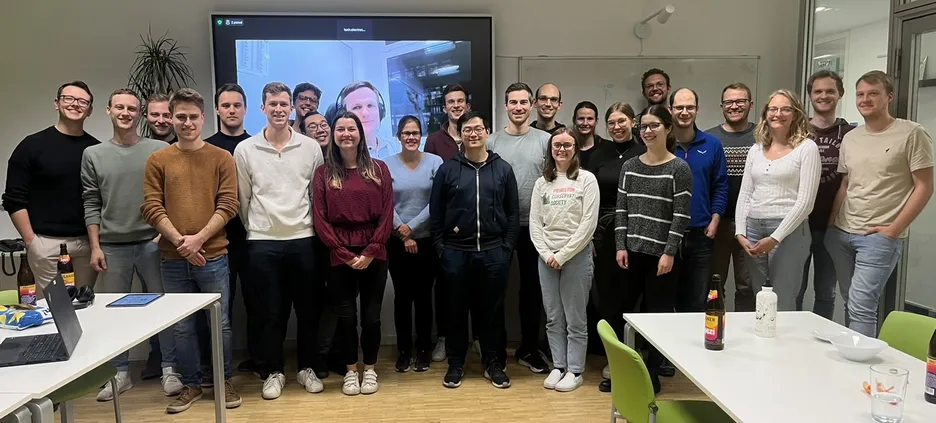
Talks and presentations on the scientific breakdown of a selected method or material class to „newbies“ by dedicated experts from the student chapter, detailed explanation of the underlying principles, discussions and practical answers for successful application.
On September 24th, the ECS Student Chapter Munich hosted the conference “Energizing the Future – Battery and Hydrogen Research at TUM”, bringing together more than 130 participants, including students, PhD researchers, postdocs, and professors. Following last year’s symposium, which focused on bridging the gap between academia and industry, this year’s event aimed to foster exchange and collaboration between different chairs and institutes at TUM working on battery and hydrogen research.
Twelve researchers from various disciplines—including chemistry, physics, mechanical engineering, and the Research Neutron Source—presented their chairs and latest findings, highlighting the interdisciplinary nature of energy research at TUM. The conference concluded with a lively poster session, where PhD students showcased their projects and engaged in discussions with attendees.
We sincerely thank all speakers and participants for contributing to this inspiring event. Special thanks go to the sponsors of this event Aerostack GmbH, Scires, and rhd instruments for their generous support.
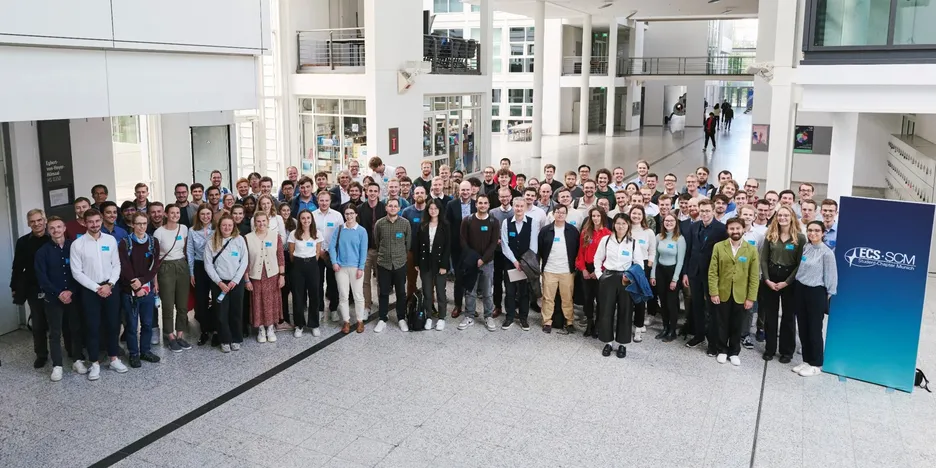
The ECS Student Chapter Munich hosted a symposium on the topic “From Academia to Industry - Electrochemical Challenges at Different Scales“ on the 21st of September with more than 100 participants, including master’s students, PhD students, Postdocs, as well as Professors. The overarching question of this event was how academia and industry can collaborate more efficiently to solve challenges in electrochemistry, especially with respect to fuel cells and batteries. The event should represent electrochemical challenges faced at the different scales ranging from academic research, over the start-up sector, up to a large-scale production level. What is the current interdependence between academia and industry within the innovation pipeline of green technology and how can it be improved? The invited speakers from universities, a start-up, established companies presented their current work and research. Battery related talks were given by Prof. Dr. Philipp Adelhelm (Helmholtz Zentrum Berlin, TU Berlin), Dr. Heino Sommer (Cellforce Group), Dr. Sophie Solchenbach (BMW Group) and Dr. Fabian Linsenmann (Tesla, Inc.). The Fuel Cell and Hydrogen Technology talks were given by Prof. Dr. Christina Roth (Universität Bayreuth), Dr. Matthias Breitwieser (Ionysis GmbH), Dr. Florian Kessler (Siemens Energy) and Dr. Matthias Hanauer (Robert Bosch GmbH). During the lunch break, members of the ECSSCM presented their current research in a poster session.
The ECS Student Chapter Munich kindly thanks all supporters of this event, in particular the eight invited speakers for their time and commitment, and in addition the ECS, BASF SE, BioLogic, BMW Group, Robert Bosch GmbH, rhd instruments GmbH & Co. KG and Wacker Chemie AG for financial support.
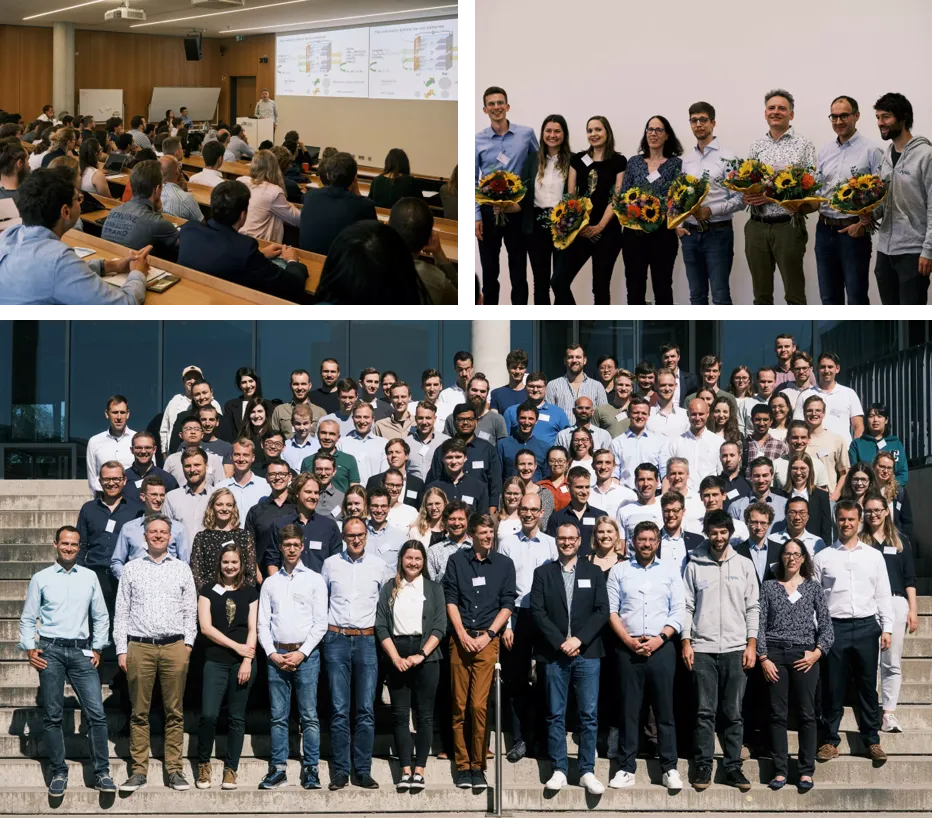
The ECS Student Chapter Munich hosted its 3rd symposium on 24th September 2019 in the rooms of the Institute of Advanced Study at the Technical University of Munich. Thanks to joint efforts of the chapter members and funding from BMW, Hereaeus, ECS, BioLogic and PINE, seven invited speakers and around 80 attendees could be hosted, amongst them a visiting group from the ECS student chapter in Ulm. Marc Koper from Leiden University gave insights into the world of platinum electrochemistry providing a lot of mechanistic details and new findings regarding cathodic dissolution of platinum. Electrocatalysis was also the focus of Karl Mayrhofer’s work at the Helmholtz Institute Erlangen-Nürnberg. He explained how to evaluate the catalyst’s activity, stability and selectivity and how online coupling of analytical techniques to electrochemical flow cells helps to evaluate those. Thomas Schmidt from the Paul-Scherrer Institute in Villigen, Switzerland is well-known for his work on oxygen evolution catalysts and he shared the latest findings from operando studies with his audience. He showed that the chemical composition of an as-synthesized IrOx and a heat-treated IrO2 remains constant during operation, whereas the morphology is altered only in the case of the as-synthesized IrO2. This topic was picked up by Peter Strasser from Technical University of Berlin, who intrigued the audience not only by new findings on the catalytic “dark side” of solar fuels and chemicals, showing by doping IrOx with nickel improved OER activity is reached. Moreover, he was also pointing out how the most significant results are achieved by a strong spirit of collaboration between scientists. After digging deep into the world of fundamental research, Andreas Peschel shifted to the focus to industrially relevant topics. He elucidated the technical processes for hydrogen distribution developed by Linde AG and one got the impression that Germany is prepared for a much higher number of fuel cell cars than found on the streets right now.
Modelling and Simulation of Electrochemical Systems
On November 29th, 2016, the 2nd Symposium by the ECS Student Chapter Munich took place in the Faculty Club of the TUM Institute for Advanced Study (IAS) in Garching. After our first symposium in February 2016 with a focus on experimental methods for electrochemical systems, this time we prioritized mathematical modeling and computational simulation of lithium-ion batteries. In total, more than 50 researchers from 14 different research groups at the TUM and from industry attended the symposium. We invited Professor Wolfgang Bessler from the Offenburg University of Applied Sciences and Professor Arnulf Latz from the Helmholtz Institute Ulm as keynote speakers, and several additional presentations were given by members of our student chapter and other researchers. Apart from that, the agenda also allowed for several extensive coffee and lunch breaks combined with poster sessions, again with contributions from various groups. The participants took advantage of these breaks to engage in scientific discussions and networking. The symposium was free of charge for all attendees and primarily funded by the TUM Graduate School. We would like to thank all participants and partners for supporting our second symposium, and we are very looking forward to the third one!
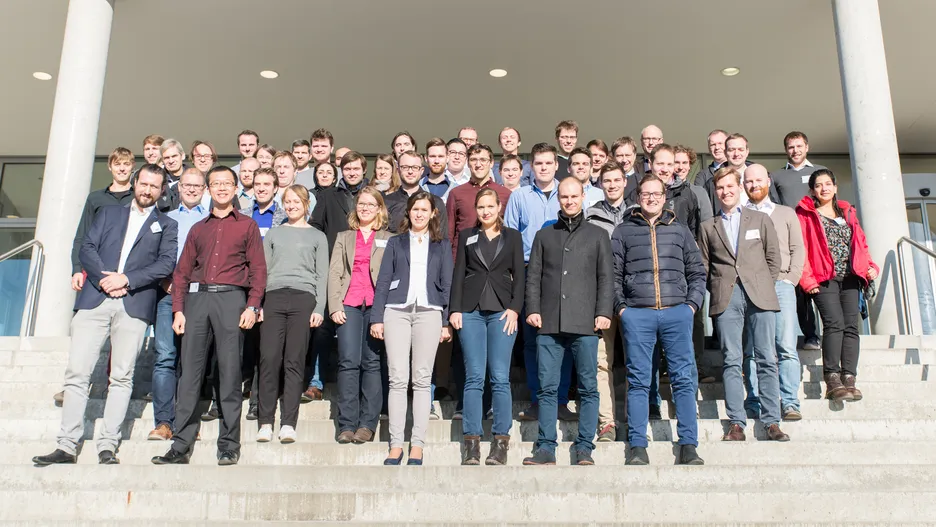
Energy Conversion – from Fundamentals to Applications
ECS Student Chapter Munich hosted its first-ever symposium on February 15th, 2016, featuring invited talks by Professor Jeff Dahn and Professor Thomas J. Schmidt, a poster session, and numerous opportunities for discussion and networking.
Professor Jeff Dahn (Dalhousie University, Canada) has contributed significantly to the field of Li-ion battery research. His talk focused on lifetime studies of Li-ion batteries and the development of appropriate means of prediction. Additionally, he presented recent diagnostic approaches for monitoring the electrolyte content during degradation testing, which is of paramount importance to the prediction of cell failure, where electrolyte loss plays a key role.
Thomas Schmidt’s group at the PSI has recently investigated electrolysis with specific interest in non-noble metal based electrocatalysts for the oxygen evolution reaction. So far, the only viable electrocatalysts for this, in an acidic environment, are rare noble metals or their oxides, such as IrO2 or RuO2. By switching to an alkaline environment, Prof. Schmidt’s group has gained the possibility to expand the palette of potential catalyst materials to non-nobles, recently investigating perovskite-type materials.
In addition to the invited talks, ~ 20 posters were presented in the course of the symposium, covering a wide range of topics, from modeling NMR-spectra of specific battery materials, over spectroscopic approaches for operando investigation in mechanistic studies, to battery safety, fuel cell electrocatalysis or electrolysis materials optimization. This reflects the widespread fields of interest of our student chapter and their members. Finger food and beverages provided, the numerous posters were discussed extensively and there was a lot of time to get into contact with researchers from other groups for and to make new friends in the field electrochemistry– no one was standing in a corner alone, conversation and academic curiosity ruled.
“How do we impact the transition into a renewable energy economy?” An important question covered by the third panel discussion of the Electrochemical Society Student Chapter Munich (ECSSCM) at the campus of the Technical University Munich. The invited guests Dr. Andreas Peschel (Linde Engineering), Dipl.-Ing. Peter Rostek (Airbus SE), Prof. Thomas Hamacher (TU München), Eugenio Scionti (E.ON SE) and Dr. Kai Zosseder (Scientists 4 Future & TU München) were able to give insights into the current state of the transition into a renewable energy economy.
How is this transition happening? What are the limiting factors and where can we contribute most efficiently to this challenge? Therefore, speakers from industry and academia were invited to combine different points of view making it easier to understand the broader picture. It could be concluded that, for the most part, technologies to accomplish the energy transition are already mature and available; however, suitable regulations, financial incentives, and missing competitiveness on the market impede faster progress.
More than 60 guests, including students, PhD students and industry representatives were able to attend the panel discussion. With this event, the ECSSCM wanted to inspire young students in their early career stage and widen their perspective on the challenges of the future. The event concluded with an informal get-together with food and drinks, which provided enough time for further questions and exchanges between the guests.
The ECS Student Chapter Munich kindly thanks all supporters of this event, in particular the five panelists for their time and commitment, and in addition the ECS, Bosch GmbH, Ham-let GmbH and C3 Prozess- und Analysentechnik GmbH for financial support.
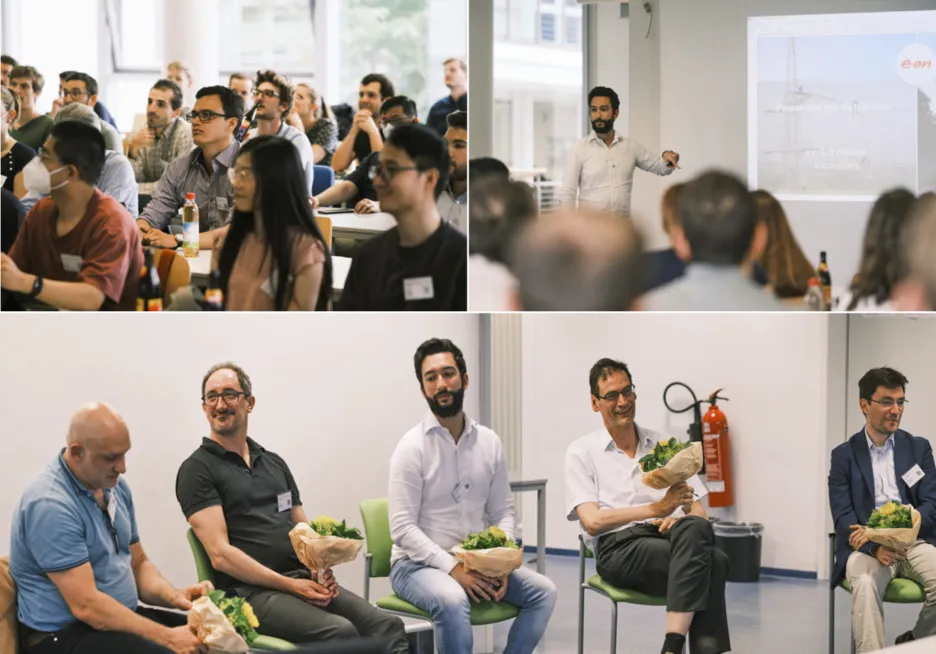

The ECS Student Chapter Munich hosted its second Panel Discussion on October 23rd 2018 on the topic “Fueling Tomorrow - Energy Supply for Future Mobility” at the Technical University of Munich (TUM). The invited guests Christian Wulff (Audi), Dr. Andreas Peschel (Linde), Dr. Lukas Köhler (FDP), Daniel Zellinger (FlixBus) and Prof. Andreas Jossen (TUM) debated on current and future problems and possibilities of fuel cell and battery electric vehicles as well as the required refueling infrastructure.
After a short introduction of the ECS Student Chapter Munich by the moderators Johannes Sicklinger and Gregor Harzer, Prof. Andreas Jossen (TUM) gave the keynote presentation on current technologies for battery electric charging and future possibilities as well as its limitations. Further, he mentioned hydrogen-refueling concepts and compared them to electric charging technologies in terms of time requirement and large-scale applicability. After Prof. Jossen’s presentation the other panelists gave short opening statements to set the base for the following panel discussion. Christian Wulff stated that fuel cell electric vehicles would be the best choice for long-range travel; however, their widespread prevalence depends on the installation of a nationwide refueling network. The production and distribution of hydrogen was adressed by Andreas Peschel, pointing out that refueling options are technologically available; however, there are only very few customers, underlining the hen-egg-problem of hydrogen fuel cell cars and their infrastructure. Political aspects of hydrogen and battery cars were elucidated by Lukas Köhler, who proclaimed that the mentioned hen-egg-problem is currently being approached by the government, which promotes the fueling infrastructure, at least for battery vehicles. He added that it will take time for the drivers to accept electric cars on a large scale. In the final opening statement, Daniel Zellinger introduced the business model of Flixbus and their future concept for battery or fuel-cell electric busses for long-distance travels.
During the following one and a half hours, the panelists debated lively and passionately on the different aspects of emission-free propulsion technologies and their impact on the automotive industry. More than once the discussions turned to the hen-egg problem of electric cars and their charging infrastructure.
Lukas Köhler expects that the consumer behavior will change severely for the future generations, in particular in the way that personal belongings such as cars or vacation homes will be shared, which enables novel concepts of mobility. In cities, car sharing with battery electric cars will be part of our daily life, whereas for longer trips and vacations, rented fuel cell cars probably will be the preferred means of transportation. When the discussion came back to the hen-egg-problem, which exists for both fuel cell and battery electric cars, the representatives of industry and politics both pointed out their achievements made so far. Both parties agreed that large-scale changes take their time. However, Andreas Jossen illustrated that in China 100 times as much charging stations as in Germany exists. In this context, Christian Wulff proposed a joint plan of industry and politics to make electric vehicles more attractive to the customer. Additionally, Lukas Köhler discussed CO2 certificates or taxes to support the transformation towards emission-free mobility, since in the end the consumers will mainly decide by the total cost of car ownership on the propulsion technology they choose.
In the case of electric buses, the situation appears to be even more complicated. Daniel Zellinger strengthened that it was extremely difficult for his company to find manufacturers of battery-electric busses, wherefore hydrogen-powered public transportation might be a less expensive solution in the future. Andreas Peschel stated that the investment for a hydrogen fueling station often is subsidized by the government, but the operation of the fueling station is not. Due to the low amount of FC cars, most hydrogen fueling stations make loss in operation and hardly anyone wants to invest. Lukas Köhler added that the public budget on hydrogen infrastructure has been only spent to a minor part so far.
All panelists agreed that fuel-cell as well as battery-elecric vehicles will spread much more in the next years and that emission-free mobility will require large investments in the future.
The ECS Student Chapter Munich kindly thanks all supporters of this event, in particular the five panelists for their time and commitment, and in addition the ECS and Fakultätsgraduiertenzentrum Chemie for financial support.
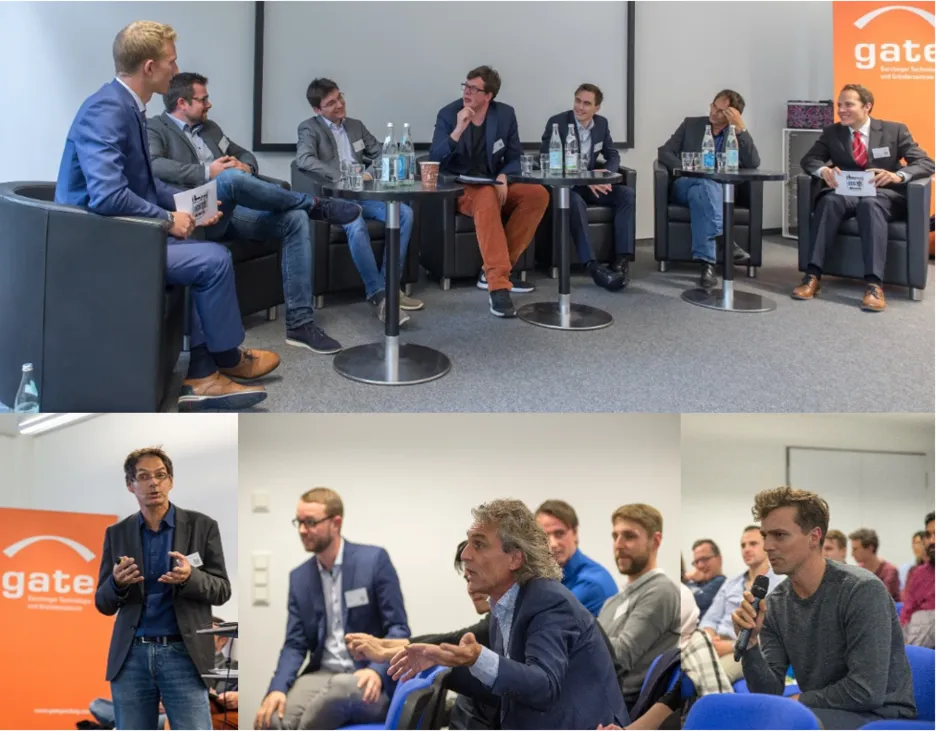
On 20 July 2017, the ECS Student Chapter Munich hosted the first ECS Panel Discussion titled “Fuel Cells vs. Batteries – The Future of Electromobility” in the Faculty Club at the Institute for Advanced Studies (IAS) at the Technical University of Munich (TUM). Dr. Peter Lamp (BMW), Prof. Werner Tillmetz (ZSW Ulm), Kevin Gallagher, Ph.D. (Robert Bosch), and Thomas Schaefer (BeeZero, Linde) accepted the invitation to promote an interdisciplinary dialogue about Electromobility and to discuss opportunities and challenges arising from different energy storage technologies. Thanks to them, the about 100 participants from industry and energy research-affiliated institutes at the universities in Munich and Ulm experienced an insightful and enjoyable afternoon.
After a warm welcome and brief introduction of the ECS Student Chapter Munich by the host team Christoph Simon and Rui Fang, Prof. Hubert Gasteiger (TUM) pathed the way for a fruitful discussion by shortly reviewing the state-of-the-art for current lithium-ion battery and fuel cell cars while pointing out today’s challenges in costs as well supply of electricity, hydrogen and raw materials. In the following opening statements, the panelists shared their individual perspectives on Electromobility, which were supported by selected key visuals. Prof. Werner Tillmetz showed the potential of a hydrogen economy against the background of global trends for electromobility. BeeZero, the world’s first car sharing with H2, was introduced by Thomas Schaefer, who explained why fuel cell cars are perfect for weekend trips. Dr. Peter Lamp illustrated how electromobility is only one aspect of the disruptive change that mobility is going through, but that electrification is a marathon, not a quick win, highlighting his presentation by a short movie about the driving experience in a battery electric vehicle. Kevin Gallagher pointed out that although batteries have penetrated the market for automotive applications to a higher degree than fuel cells, the development of a recharging infrastructure will be crucial for both technologies.
During the following ~90 minutes, a lively and sometimes passionate discussion fired up between the panelists on the different aspects of energy storage technologies and their impact on the automotive industry, moderated by Christoph Simon and Rui Fang. While Peter Lamp and Kevin Gallagher were both confident that today’s driving range limitation of battery-powered vehicles can be overcome by technological advances, Prof. Werner Tillmetz suggested: “If you can only buy one car, buy a fuel cell car.” Another key point of the discussion was the recharging/refueling infrastructure, which has to develop simultaneously with the vehicles. “Infrastructure for fuel cell cars is a hen-egg problem, and we need external forces to break it”, explained Thomas Schaefer. Both he and Dr. Peter Lamp emphasized the importance of end user feedback: “In the end, the customer experience will be the same for a battery or a fuel cell car, except for the re-fueling,” Dr. Peter Lamp admitted. For Kevin Gallagher, smart use is a key when it comes to the efficient charging of battery vehicles, as digitalization and connectivity might lead to solutions that we can’t think of today.
Although it seems as battery-powered vehicles might have a head start, it is not predictable which technology will be more successful in the future, as also the way how we use cars will change dramatically, believes Prof. Werner Tillmetz. Therefore, a key task for Thomas Schaefer is to raise public awareness and everyday visibility fur fuel cell cars. However, all panelists agreed that both technologies should be supported, depending on the use case. “We should all fight together coming towards zero-emission mobility”, said Dr. Peter Lamp, whereas Kevin Gallagher concluded: “We’re on the transition – it’s occurring before our eyes.”
After questions from the audience, the following get-together left some time for further discussion with the panelists as well as networking among the participants. “I really appreciate the chance to attend a discussion between experts that are addressing the challenges in Electromobility from such different angles”, commented a participant after the event.
The ECS Student Chapter Munich kindly thanks all supporters of this event, in particular the four panelists for their time and commitment, and in addition BMW, Umicore, and BioLogic for financial support.
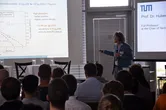
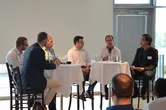
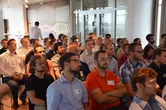


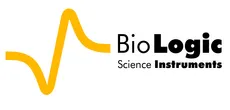
Guided tours of companies operating in the field of renewable energies, allowing participants to gain firsthand insights into its operations, culture, and facilities.
